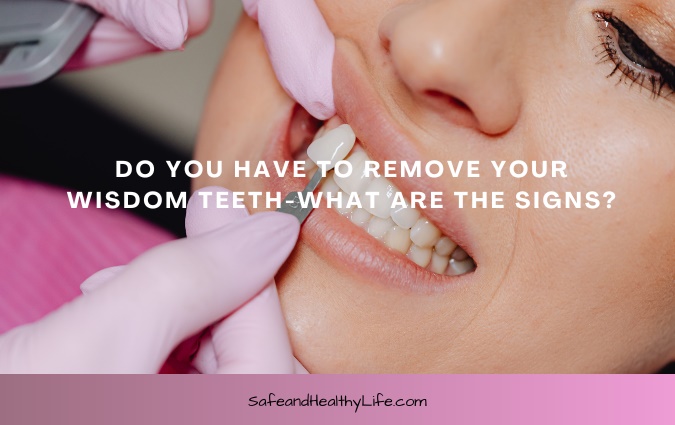
Wisdom teeth usually grow in the early 20s, and this experience can be painful for some. On the other hand, some people won’t even notice that their wisdom teeth have grown until they cause a certain problem.
In today’s post, Dental Implants Harrisburg NC professionals will discuss wisdom teeth and the signs that indicate you might consider removing them.
What are wisdom teeth?
Wisdom teeth are a third set of morals, placed in the back and end of your teeth rows. They grow in both the upper and down jaw and encounter four teeth, with one on each side in both raws.
Wisdom teeth don’t necessarily grow at the same time, and not even all four come out in everyone.
However, the growth of wisdom teeth can be the reason for many changes in the jaw and teeth raw. For instance, growing wisdom teeth can move the entire tooth raw so the middle of the teeth line can move aside creating asymmetry.
Also, as wisdom teeth are the last teeth that grow in line, and others have already positioned their place in a raw, wisdom teeth can cause teeth to become crowded or damaged.
Sometimes wisdom teeth don’t impact any changes in teeth raw but it can happen in later years due to a decrease in human jaw size over the years.
On the other hand, some people’s jaw is big enough that the growth of wisdom teeth won’t cause any disturbance in teeth raw.
Because wisdom teeth can potentially cause various harm, many dentists recommend removing wisdom teeth in the early stage of their eruption and before they fully emerge.
This is usually because the sooner it is easier and quicker to be extracted due to the tooth and bones are not fully formed.
However, wisdom teeth don`t have to be extracted in advance if they have enough space in a jaw to grow, are in the right position, are healthy, don`t disturb bite, and are opportune for adequate cleaning.
The signs that indicate you should remove your wisdom tooth or more than one
1. Pain
Pain is an obvious sign that your wisdom tooth is better to be removed. Usually, this pain is experienced as dull and aching, occurring in the jaw that, if continues, causes a headache and can trigger a migraine. Also, pain can occur when chewing food.
Wisdom teeth don’t only provoke pain in their locality but can also cause pain in the wider area. The pain from the eruption of wisdom teeth often radiates up toward the head area causing pain in the ear.
2. Overcrowding
As mentioned before, wisdom teeth can cause teeth overcrowding. This happens when wisdom teeth push other teeth forcing them to move, shift, rotate, crowd, or overlap.
Disturbance of a straight line can further cause gum issues and the teeth that overlap or are crowded retains food remains which can cause infection.
3. Sensitivity
Another symptom that indicates wisdom teeth extraction is their sensitivity to hot and cold causing acute pain.
4. Impacted teeth
When wisdom teeth create a crowded tooth in the mouth, the impacted teeth happen as a consequence. As the impacted teeth can further cause serious jaw problems, it’s better not to wait for that to occur.
5. Not fully erupted
The process of growing wisdom teeth takes some time, however, it often happens that wisdom teeth don`t completely erupt from gums. When this occurs, cleaning and brushing wisdom teeth becomes challenging and even painful.
This also impacts overall oral hygiene as wisdom teeth partially erupted retain food particles which, if not thoroughly cleaned, can cause tartar, plague, and bacterial infections of the gums.
6. They remain completely veiled by gums
Wisdom teeth sometimes stay hidden underneath gums and never normally emerge. This state of wisdom teeth can cause the appearance of a cyst. Cysts are sacs filled with fluid that can further cause damage to a near tooth and jaw bone.
7. Inflamed gums in the back of your mouth
The growth of wisdom teeth usually is followed by swollen and tender gums. Gums can become red and even bleed, making them hard and painful to brush. These are the symptoms of gum inflammation which along with bleeding, can cause serious problems.
One of the following symptoms of inflamed gums is bad breath. Therefore, if you experience bad breath, maybe it’s because of wisdom teeth that require removal.
Summary
Although saving teeth is a priority in dental hygiene, extraction of wisdom teeth is sometimes necessary even though they are healthy.
As wisdom teeth don`t affect speech and chewing abilities, removing them can provide more benefits than having them.
However, everyone doesn’t need to remove all wisdom teeth, and the need for their removal will be evaluated by your dentist.
If you notice any of mentioned signs or your dentist estimates that they will cause more harm than good, it’s completely safe and recommended to extract one or more of them.
About The Author:
Stacey Smith is a freelance health writer. She is passionate to write about women’s health, dental health, diabetes, endocrinology, and nutrition and provides in-depth features on the latest in health news for medical clinics and health magazines.




